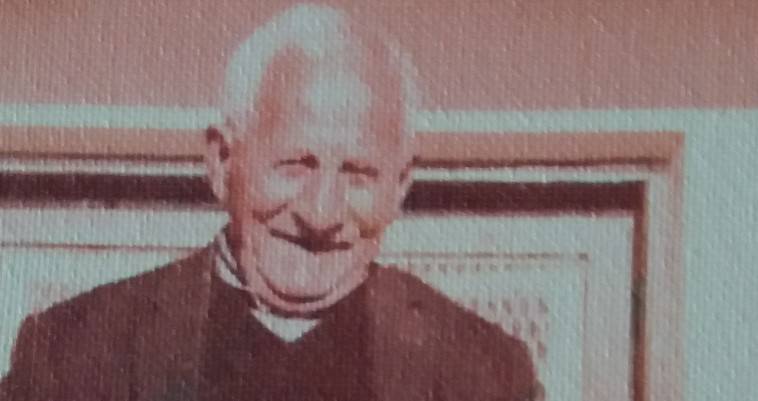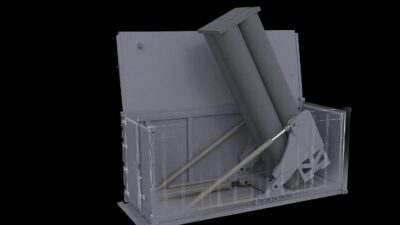Lily Michailidou: His smile is etched in my memory
06/09/2020
«Childhood is our real birthplace.
That’s where we’re always coming from…»
to my grandfather, Yacoumis
His boots squeak at every step. I can hear them from far away, from the moment that, every Sunday after church, he turns into the street where our house is. He is dressed in his best clothes, black, pleated breeches, a belt that holds them tight round the waist, a white linen shirt, buttoned up to the neck, a short fancy waistcoat, tailor-made, a black jacket and black hat (he wore a straw hat for his daily work and in the winter a mantos (1)), knee-high socks and, of course, the leather boots, handmade by the village priest cum cobbler (for everyday use he wore siritzes (2).
In his eyes he still has the gleam from the lighted candles. Perhaps because he had been gazing at them intently during the service. His clothes had the smell of incense because the priest, always going the same way to “the Holy of Holies…”, passes next to him, stops and repeats the movements allowing time for the incense fumes to gently settle on his hair and clothes. He always sits in the same pew, together with the other men, on the right-side of the aisle, beneath the icon depicting hell. He’s been wearing these same clothes for years. Perhaps one, at most two, changes. One for Sundays and one for the major feast days: Christmas, Epiphany, Easter, Pentecost.
Sunday was his day off; as it was for his animals. Two cows and two donkeys, a male and a female. On weekdays he tends the fields, and there are more than a few, in various locations beyond the village, next to the river, on the mountain’s steep pine-covered slopes, in the valley. The donkeys are his means of transport and his cows his helpers in ploughing and threshing, selfless, silent companions throughout his life.
Grandma always follows behind. Never ahead of him, never beside him. They share the Sunday meal with us. His glass is always full of wine. Grandma’s no, nor ours either. The silent blessing. When we’ve finished, he goes to pass his time in the cafeneion. Only for men.
I gaze at his hands, hands that are worn, full of red cracks from over the years, that gently caressed nothing but his animals and the earth, that ploughed its secrets day and night. I gaze at his eyes that have taken on the dull colour of the sky, that are full of sprightliness and memories. Beloved memories that doubly bound him to all he had experienced. Through his glasses he surveyed the stars’ course. He knew when the morning star would rise, when the Plughle (3) would appear in the sky, when, long before daybreak, the whore star (4) would rise, the brightest of all, that coursed and dipped like the moon. Each of them informing him of his times for work and rest, he had no other clock. Another universe above his own.
For more than seventy years, from the age of six when his father had died, he had been tending the fields so devotedly that the deep earthy colours had imprinted themselves on his body and his clothes. He sowed, reaped, knew every stone that marked out his land, the agrelies (5), the palloures, the throumbia (6), the wild mosphilies (7), he knew when the snakes would come out to bask in the sun, when the first greens would sprout for cooking, when the birds would fly back from the south. He slept and woke worrying whether it would rain, if the seed would take, when the earth needed to be left fallow. He spoke with nature and it gave him strength, he spoke with God and he found companionship. The fields managed to soften the ugliness of the world; the fields were his home.
On winter evenings, in front of the nistia6 in his house, or beside the wood stove in our house, he would relate stories from the past, hikes with his animals in the snow to sell his products in other villages, his toils and torments, as he called them. It wasn’t just an account of all that he had lived through but an expression of yearning as when a poem is being created.
His stories followed the changing of the seasons and always had a taste of the earth. With half-closed eyes and cheeks flushed from the fire, he breathed in the smell of the burning wood, entranced, as when someone smells a double matsikorydo (7). Throughout his life, he remained devoted to his simple daily duties. He never complained.
I once read that “whoever experiences that moment when the sun has entered Ares and before it passes into Leo permits a musical vibration to enter within him and endows his soul with eternal placidity”. It was clear that he had experienced it.
Everything that he encountered, even fleeting things, had a reason for existing and a significance, nothing passed unseen; the birth of children, one after the other, their baptisms, the marriages and the coming of grandchildren, the feast days and the family gatherings, the same sacred routine every Sunday for years on end: church, cafeneion, the sudden deaths of his relatives and friends, the funeral orations, the farewells, the compromises, were all part of his life. “Old age is like the sunset,” he used to say. He was always anxious about life, about his family, but he was not afraid to face death. “That’s how God wanted it”. The shrouding of a person dear to him was for him what for someone else was the swaddling of a newborn. “We were born,” he would tell us, “to die,” thoughts that filled him with a sense of loneliness, but he never complained.
It was his smile that always remained in my memory
cool like autumn, warm like summer
his leather boots, the black breeches, the short waistcoat
the heavenly eyes of an age that faded with his death.
When he departed exactly, I don’t recall.
When you depart, time is of no importance.
1. mantos: thick black hood that men wore over their heads especially when working in the fields. It was fastened down behind their necks.
2. siritzes: boots made of untanned leather and with soles of thick roots to provide a firm step.
3. Plughle (plough leg): Pleiades, seven stars that rise to form the shape of a plough.
4. the dawn star: the brightest star that rises long before dawn.
5. agrelies: wild asparagus.
6. palloures, throumbia: bushes that thrive in the valleys.
7. mosphilies: there are three kinds in Cyprus and Greece, two being wild and the third ornamental. It is one the plants considered to be marvels of nature for their beneficial properties. The ancient Greeks considered it a symbol of happiness and prosperity. The Romans used it to avert the evil eye. The North-American Indians ate salted meat with seeds of the plant during their wanderings. The crusaders offered branches of the plant to their loved ones as a symbol of hope. The Burning Bush in the Old Testament was related to this plant.
6. nistia: hearth, fireplace, which was not only for warmth in winter, but also for daily cooking.
7. matsikorydo: otherwise known as Narcissus tazetta, a plant of the Amaryllis genus.





